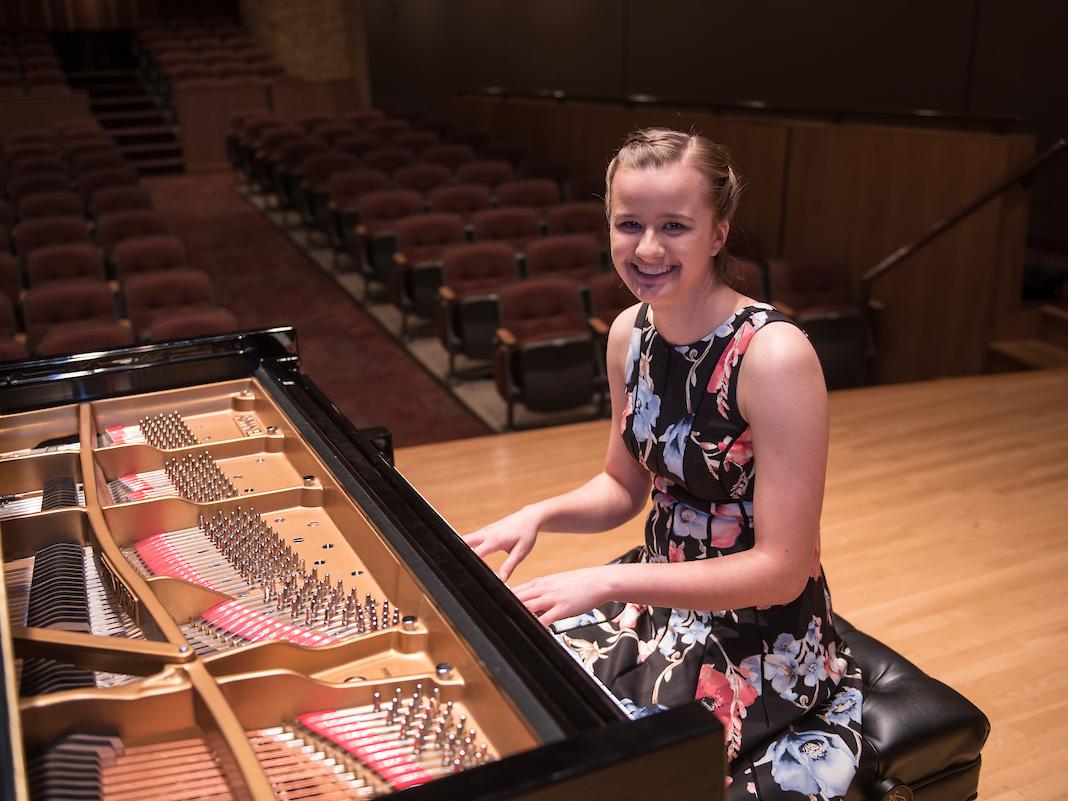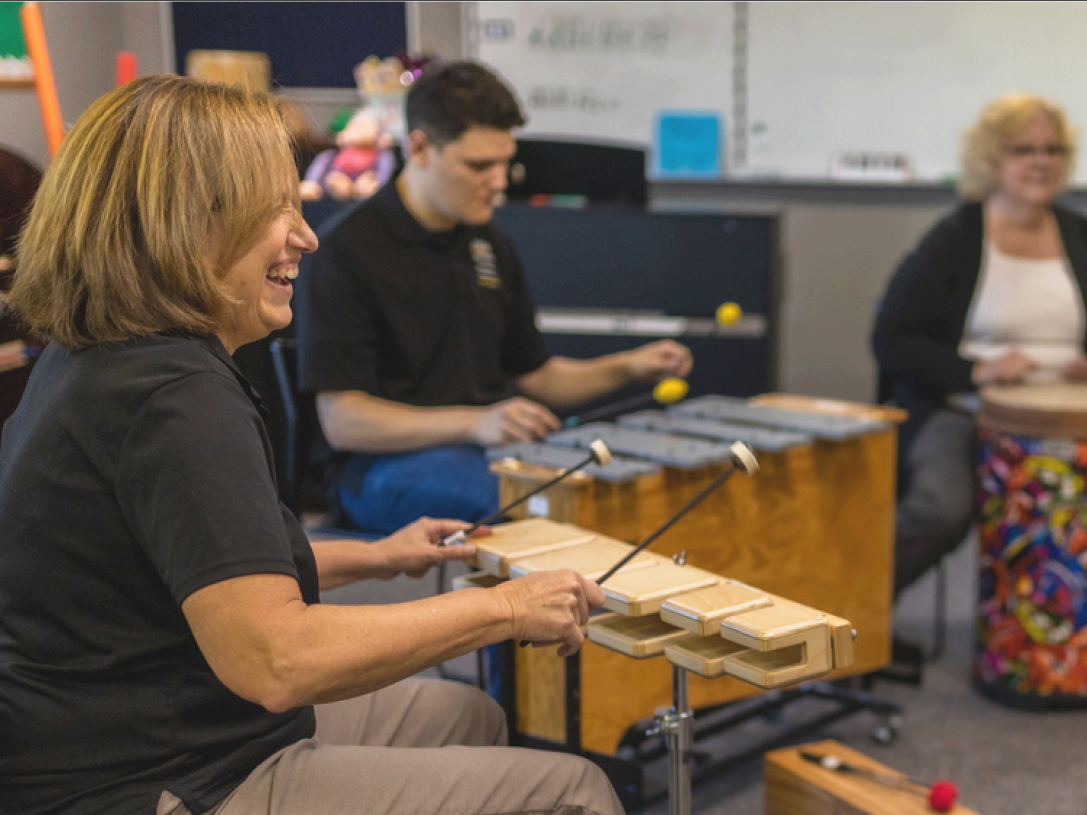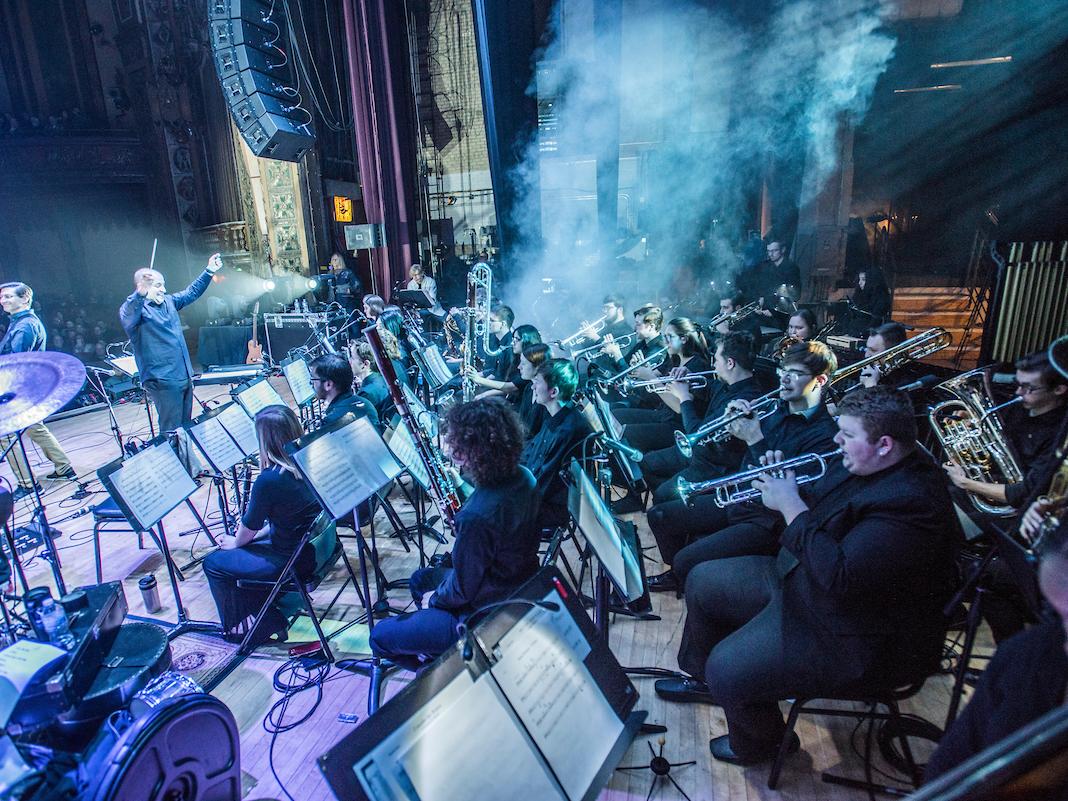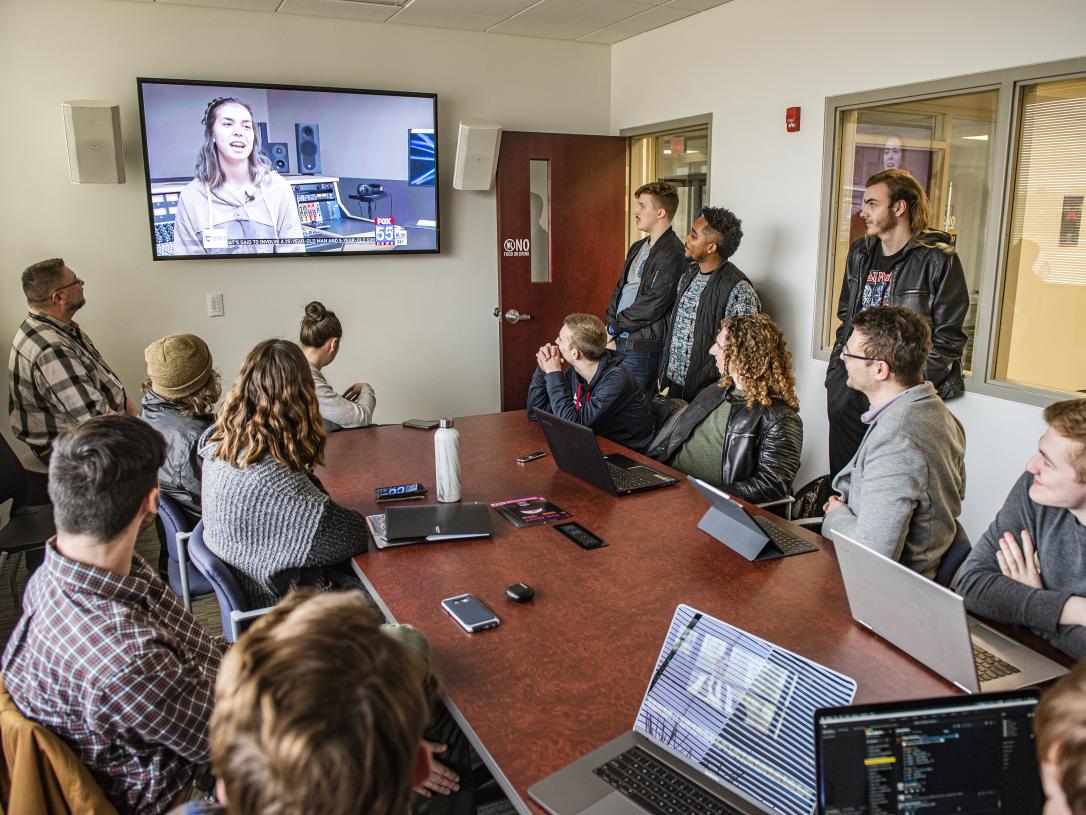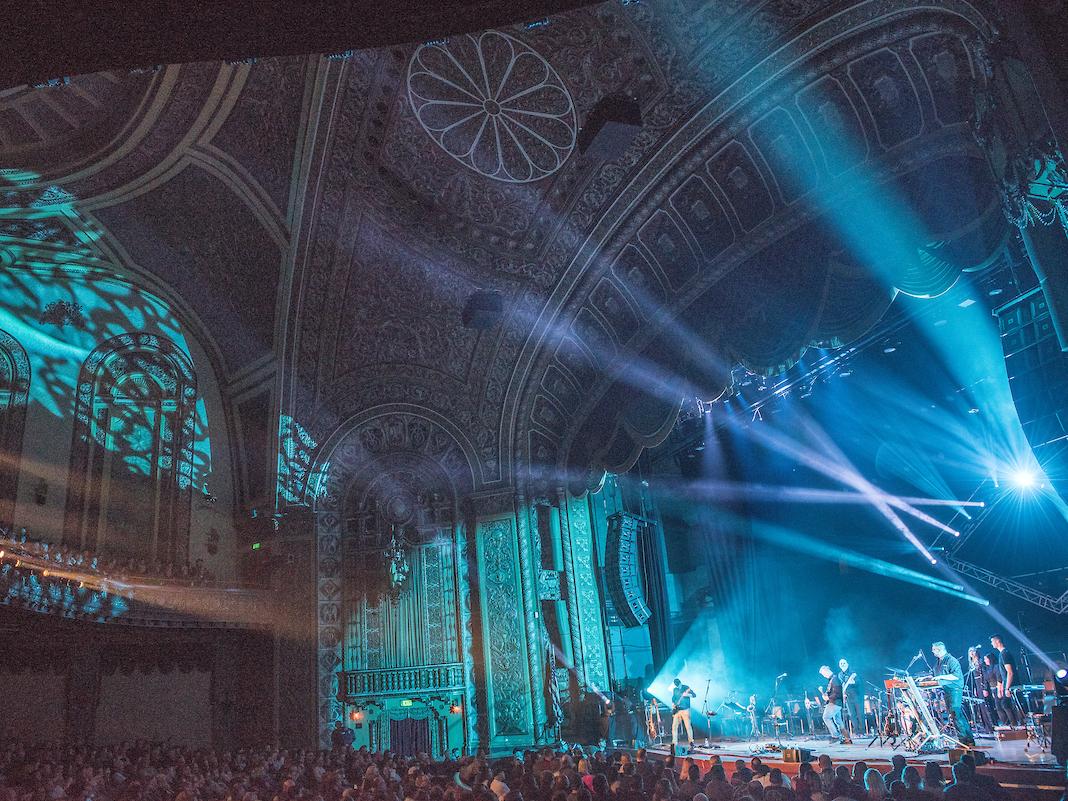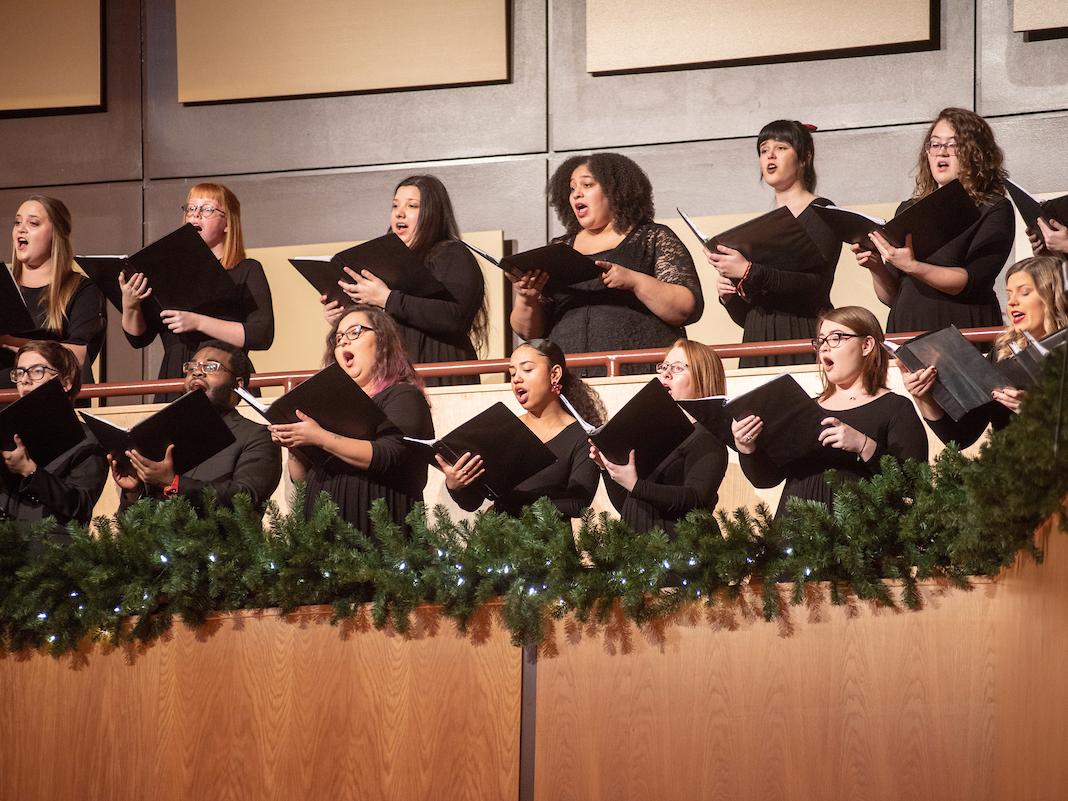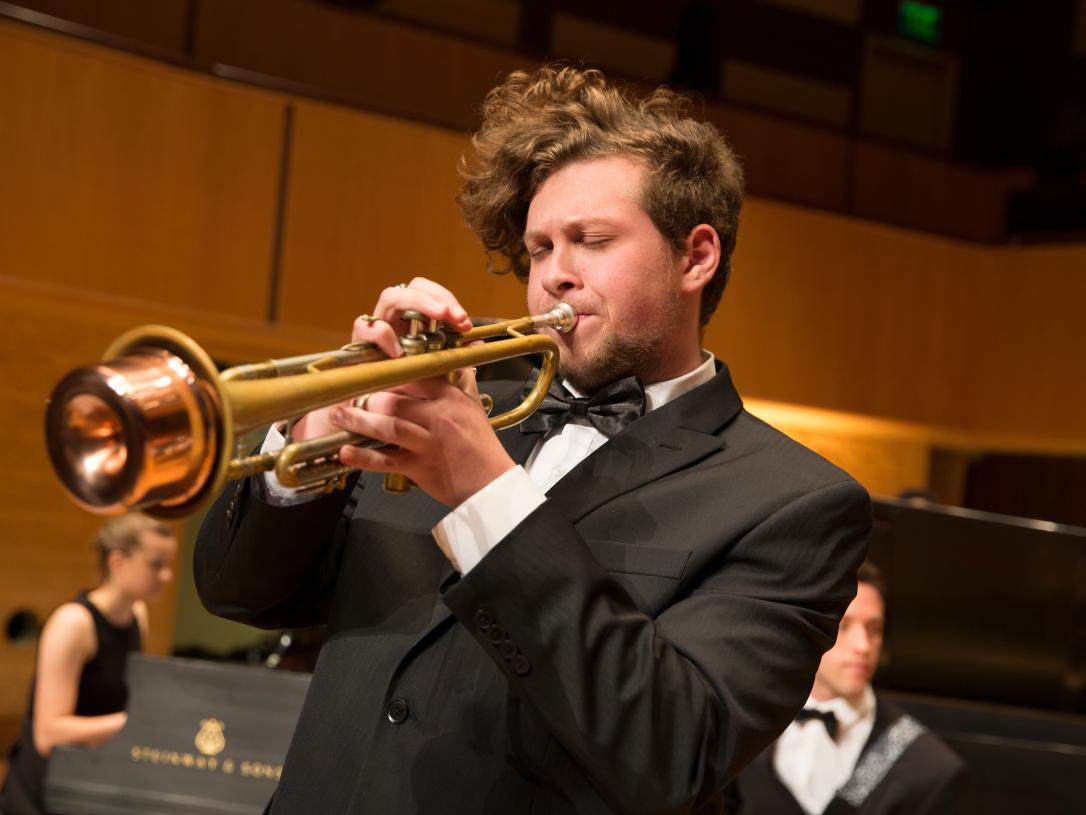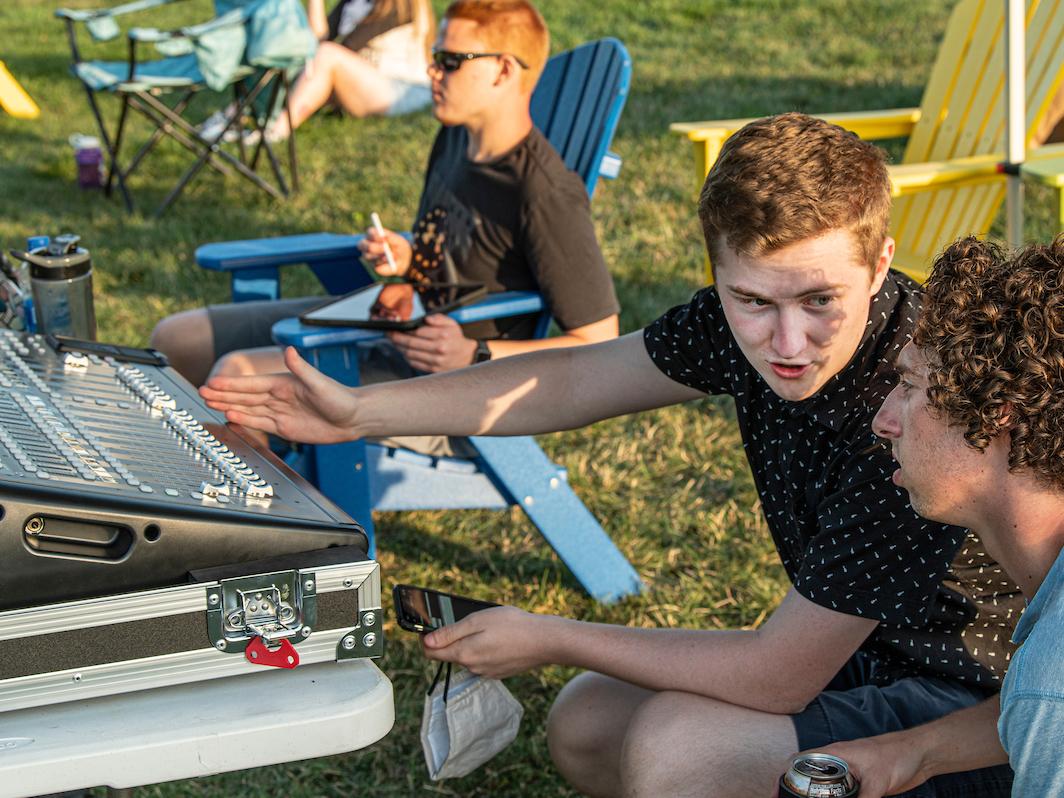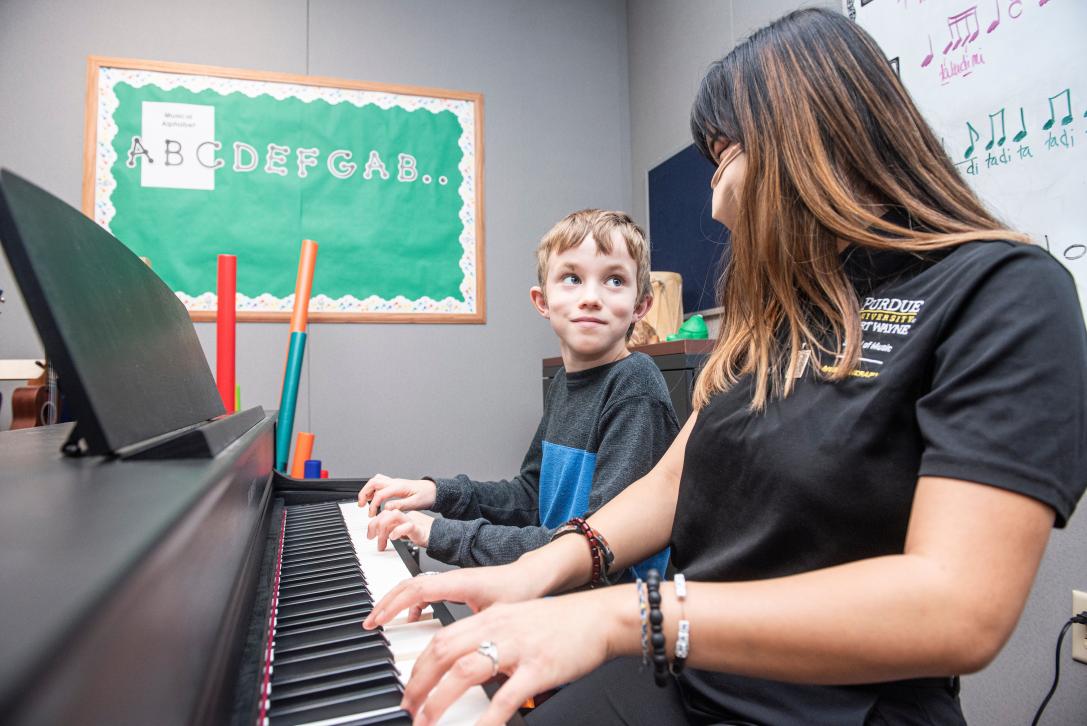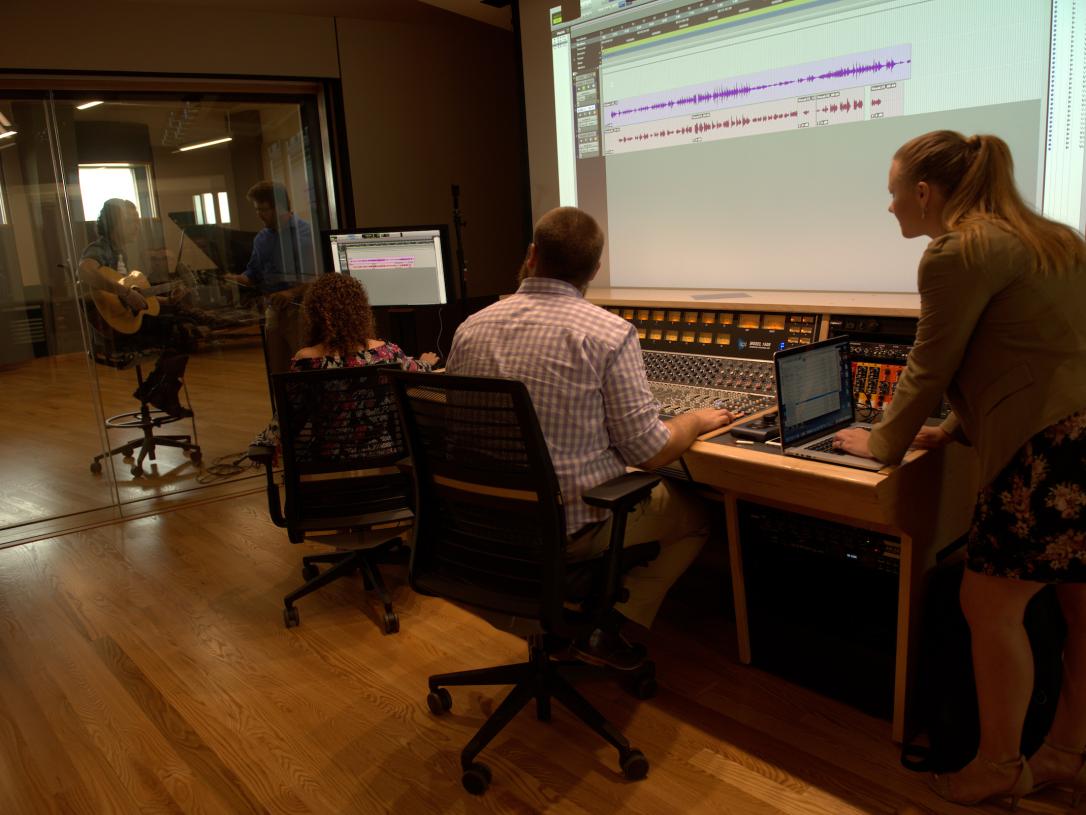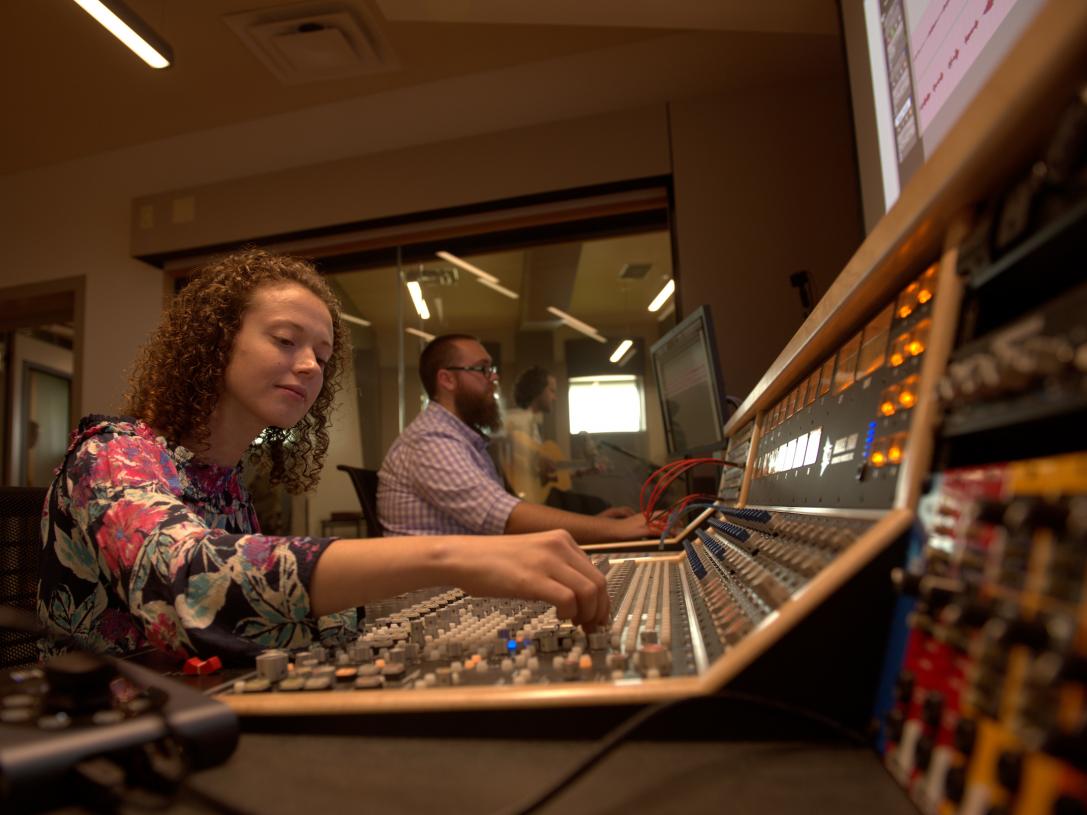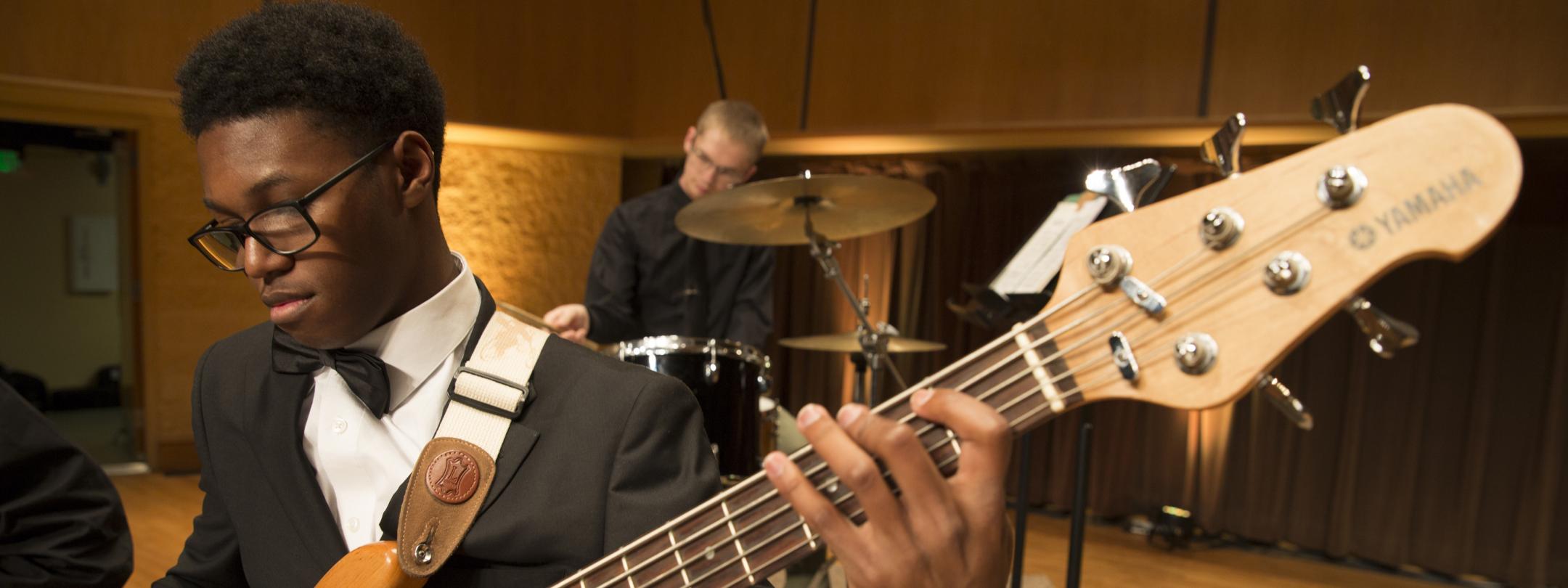
Music Programs
This is where musicians become everything they’ve dreamed.
Our degrees and minors span all realms of music, from education to performance to therapy.
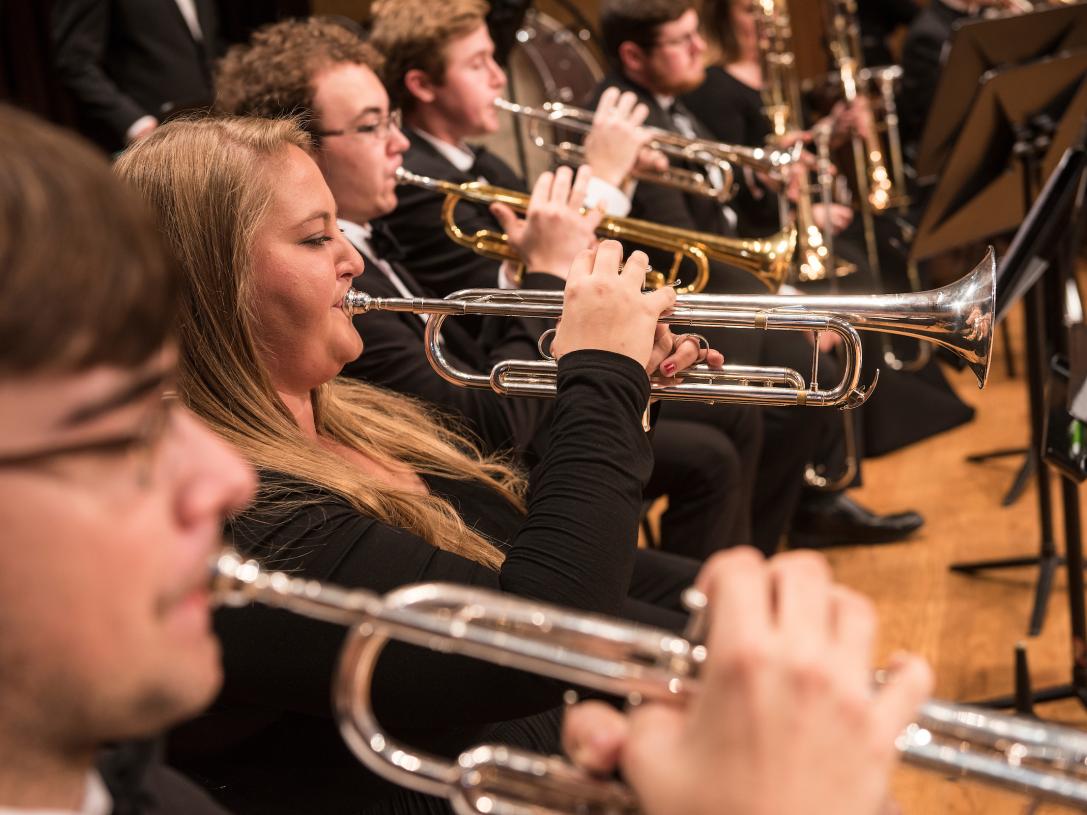
Music Performance Certificate
We offer the music performance certificate for those who want additional training and experiences aimed at deepening and enriching music performance skills. You’ll take part in weekly performance classes, studio classes, master classes, and cocurricular experiences with various music organizations as you perfect your skills.

Program
Highlights
Program Highlights
• Perform with a high level of artistry
• Study with artist teachers
• Support from the Mastodon community
• A prestigious Purdue degree
career and salary data
How far will you go?
General labor market and salary data are provided by Lightcast via O*NET and may not represent the outcomes experienced by Purdue Fort Wayne graduates in these programs. Purdue Fort Wayne graduates in these programs may earn salaries substantially different or less than the amounts listed. Salary and employment outcomes vary by geographic area, previous work experience, education, and opportunities for employment that are outside Purdue Fort Wayne’s control. Purdue Fort Wayne does not guarantee employment placement, salary level, or career advancement.
Accreditation
Purdue University Fort Wayne is an accredited institutional member of the National Association of Schools of Music and the American Music Therapy Association.
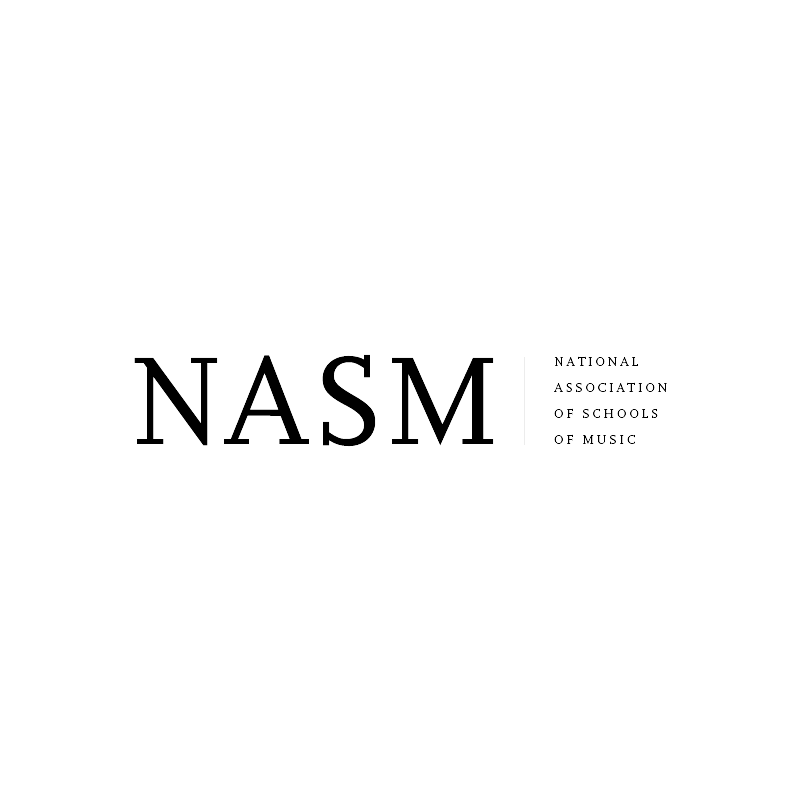
Student Learning Outcomes
Upon completion of this certificate, students will be able to demonstrate the following learning outcomes:
- Demonstrate technical mastery of a primary instrument, including tone production, expression, and articulation appropriate to the level of study
- Analyze and interpret musical forms and structures as a means of supporting a developing career in music performance and studio teaching
- Demonstrate knowledge of music literature, performance practices of various styles and time periods, and standard repertory for the student’s primary instrument
- Develop proficiency in performing as a soloist, chamber musician, and ensemble member
- Cultivate basic teaching skills and concepts for studio and group instruction specific to the student’s area of study and performance
- Identify and develop skills necessary to managing a professional performance career
- Music Producer
- Professional Performer
- Session Musician
- Songwriter/Composer
- Sound Designer
Explore similar degree programs.
